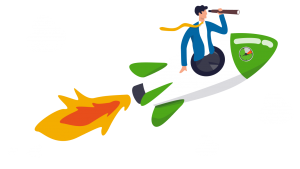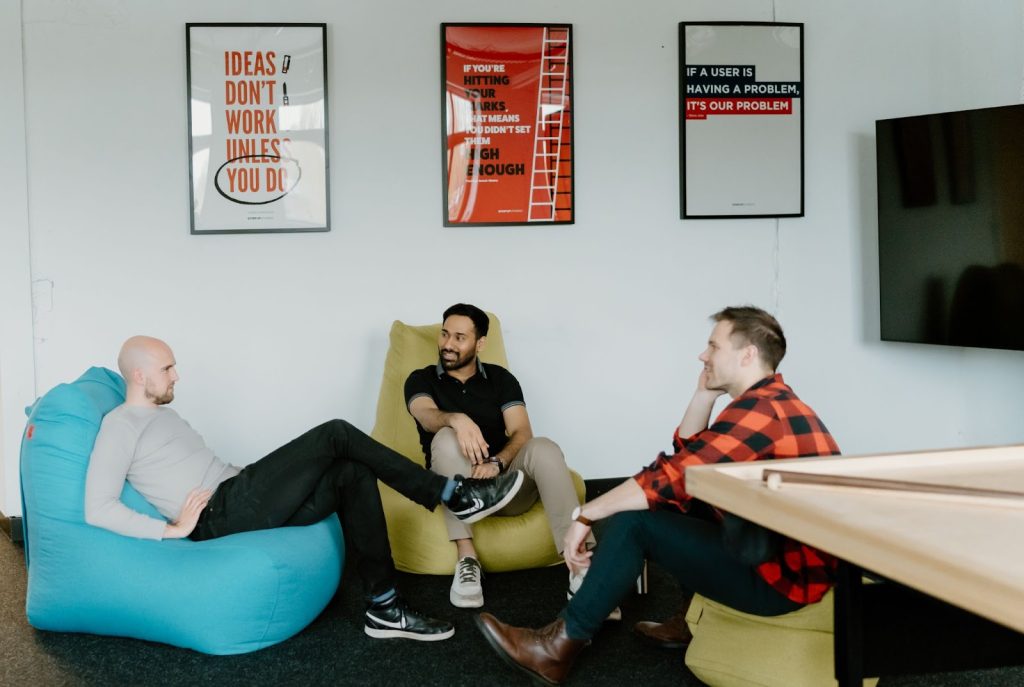5 must-have soft skills to look for in job candidates in the AI era

Today, soft skills matter more than ever.
A quick refresher—soft skills are general skills that might be applicable to all professions. Think communication, quick learning, punctuality, etc. They’re typically contrasted with hard skills, which are profession-specific skills, e.g., proficiency in writing articles, coding, knowing how to operate certain machinery, and others.
Want to get the most out of your time?
Try DeskTime for free!
Try free for 14 days · No credit card required.
By signing up, you agree to our terms and privacy policy.

Soft skills have always been incredibly important—all the talent, smarts, and knowledge in the world mean very little if the person doesn’t show up to work or struggles to collaborate with colleagues to produce a result. Nevertheless, soft skills have generally been viewed as secondary.
However, in recent years, the discussion around them has changed considerably. They’re no longer nice-to-haves. In many cases, they’re quickly becoming even more important than hard skills.
Why?
Because of artificial intelligence.
Let’s explore how AI is changing which skills matter and which five must-have soft skills you should look for in your new hires.

How AI is changing which skills matter
In past years, talk about soft skills often revolved around how being an amicable colleague and a good team member were strong advantages in the business world and would improve your chances of getting hired and promoted. While that still holds true, the rise of AI has put an entirely new set of soft skills into focus.
AI has flipped the script across countless industries and roles—from programming and HR to marketing and design.
Specifically, AI can help improve productivity in the workplace. Increasingly many positions are disrupted by AI to the point that not using it can put you at a major disadvantage versus a peer who does.
Using AI, however, is not easy.
New tools pop up every day, old tools get new updates, new versions of established models work differently—the AI landscape is extremely fresh and dynamic (here are some courses to help you). In other words, using AI isn’t about learning a single process and then applying it over and over.
To make the most of it, you must continuously explore, learn, re-learn, test, and adapt. You must find creative ways to solve problems. You must be curious and proactive.
Traditionally, these things fall under the purview of soft skills.

5 must-have soft skills for the new era
While hard skills remain critical, the importance of soft skills is growing. And these are the five soft skills to look for in your next hire—be it an intern or a senior executive.
1. Continuous learning and curiosity
From the pandemic to AI—workplaces are changing at unprecedented speeds. Specifically, how we work, how we communicate, and what tools we use. In this day and age, not only can you not afford to get entrenched in rigid ways of working, but you also must be proactive in embracing the change.
That’s why continuous learning and curiosity rank as the most important soft skills to look for. Thriving in the modern workplaces demands being eager to constantly acquire new knowledge and readily adjust to new technologies and workflows. This means your new hires should be flexible, open-minded, and resourceful, always seeking to understand how the latest advancements can be leveraged to their advantage.

Looking for ways to up your business?
Use DeskTime for time management, and always stay on top of your team’s efficiency ratings!
2. Critical thinking and problem-solving
It’s one thing to be open to using the tools, but it’s an entirely different thing to learn how to best apply them. This involves a lot of trial and error, targeted experimentation, and understanding of processes. Anyone can run a prompt they found on LinkedIn, but not everyone can figure out clever ways to solve unique problems.
That’s why you should evaluate your candidate’s critical thinking and problem-solving skills. Look for individuals who can analyze complex situations, identify core issues, and devise innovative solutions, rather than just following prescribed methods.

3. Communication
Even the most advanced AI can’t replace the human ability to connect, empathize, and build consensus (yet). In fact, as AI handles more technical or repetitive tasks, human-to-human interaction becomes even more critical—especially in cross-functional teams and creative environments.
That’s why strong communication and collaboration skills remain non-negotiable. It’s not just about being clear in emails or meetings—it’s about actively listening, articulating thoughts, giving and receiving feedback, and building trust. Your ideal candidate should thrive in collaborative settings, whether brainstorming ideas with peers or coordinating complex projects across departments. And you should create a work environment that fosters it.
4. Collaboration and teamwork
AI tools often encourage siloed workflows—you tinker away with prompts you’d be embarrassed to share, you find AI-based solutions to problems instead of asking colleagues for assistance, and you might even turn to AI for a quick friendly chat, instead of heading over to the watercooler. Do we even need colleagues anymore?
Yes, absolutely. The more AI takes over routine tasks, the more valuable human collaboration becomes. Modern work increasingly depends on cross-functional input, shared understanding, and team-based execution. It’s not about who can write the best prompt alone—it’s about how well people can build on each other’s ideas, critique constructively, and drive projects forward together.
Look for candidates who demonstrate empathy, openness, and a willingness to co-create.

5. Attention to detail
AI is powerful, but it’s not perfect. It can hallucinate facts, misinterpret context, and introduce subtle errors that are easy to overlook—especially when you’re moving fast. That’s why attention to detail is more important than ever. The ability to spot inconsistencies, double-check outputs, and polish the final product is what separates good work from great work.
In the AI era, your new hire might not write every word or generate every line of code themselves—but they are still responsible for the end result. Look for individuals who take pride in accuracy, who care about getting the small things right, and who understand that AI is only as trustworthy as the human reviewing its output.
Stay in tune with your team’s productivity
Ultimately, maximizing the potential of both your human talent and AI resources hinges on efficiency and focus.
Effective time management, for instance, ensures that valuable human ingenuity is directed towards tasks where it makes the most impact, while AI handles the repetitive tasks.
To stay in tune with your team’s productivity, understand where time is best spent, and optimize workflows in this new landscape, a robust time tracking solution is invaluable. By integrating with your team’s daily operations, a tool like DeskTime can provide the insights you need to foster a productive and future-ready workforce.
Learn more about DeskTime and check out the demo to see what it can do for your business.
Did you find this article useful? Give it a clap!
Psst! You can clap more than once if you really loved it 🙂